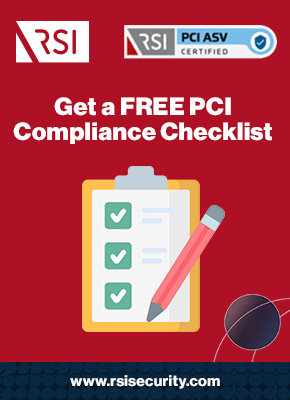Cloud computing has become attractive in recent times because of its superfast application deployment, flexible computing resources, and low operating costs.
However, fraudulent activities due to breaches in the privacy of cloud computing have also been on the rise. In a report by the Federal Bureau of Investigation (FBI), credit or debit card fraud ranked third on the list of reported crimes in the United States in 2009.
The Payment Card Industry Data Security Standards (PCI DSS) was created in 2004 to improve security standards, reduce credit card fraud, and to help concerned stakeholders combat online fraudulent activities.
Implementing the PCI DSS compliance rules has become a difficult task because of the restrictions in movement caused by the current CoronaVirus (Covid-19) Pandemic.
With work-from-home and a recession looming for the rest of 2020, will the Payment Card Industry look to adjust cybersecurity standards under the new normal? Nothing’s certain but here’s what we think could change.
What is PCI DSS?
Before progressing to know what could change in the cybersecurity industry in the coming times, it’s imperative to understand what the PCI DSS guidelines entail and how they operate.
The PCI DSS is the security standard for the payment card industry. The PCI DSS consists of a core set of principles and requirements intended to help organizations optimize the security of credit or debit and cash transactions and to protect cardholders against the misuse of personal information.
To meet the PCI regulations, shareholders and merchants must follow the PCI DSS regulations. The PCI regulations and PCI DSS guidelines are useful for retail merchants, banks, point of sale vendors, and any other organization that transmits, processes, and stores such data.
The operations of the PCI DSS are monitored and managed by the PCI Security Standard Council (PCI SSC), responsible for the development, maintenance, storage and publication of the PCI DSS, which in turn are the minimum criteria stakeholders, merchants and organizations must meet to avoid data breaches.
Nevertheless, the responsibility to comply with the principles of PCI DSS rests on payment brands and acquirers, not the PCI SSC.
Assess your PCI compliance
Major Principles of PCI DSS
Six principles cover the 12 operational requirements of security management, policies and procedures, network architecture, software design, and physical security of the PCI DSS.
Here are the principles:
- Build and maintain a secure network: This principle involves the creation of a secure network for smooth transactions. This is done by installing and maintaining a firewall configuration. It also covers the use of vendor-supplied defaults for system passwords and other security parameters.
- Protect cardholder data: As the name suggests, this involves the protection of stored cardholder data. It also covers the transmission of encrypted cardholder data across open, public networks safely without violation.
- Maintain a vulnerability management program: This allows you to monitor and update anti-virus software, anti-spyware programs, and other anti-malware solutions.
- Implement strong access control measures: This involves;
-
- Restricting the access of businesses to cardholder data to a need-to-know
- Assigning a unique ID to each person with computer access.
- Restricting physical access to card center data and the managed servers to ensure both physical and electronic protection of cardholder data
- Monitor and test networks: This requires the constant testing and monitoring of networks to ensure they’re up-to-date.
- Maintain an information security policy: This principle requires you to maintain an up-to-date and thorough information security policy.

Expected Changes
Organizations and individuals will be forced to embrace new practices like social distancing and remote work because of the Covid-19 pandemic.
This remote work model has led to an increase in the use of credit or debit cards for payments. Because of this, organizations and merchants now have to comply with the regulations of PCI DSS to avoid data breaches and ensure maximum security. In adjustment to the current trend, expect the two changes below.
Remote Assessment
Before the pandemic, part of the compliance for the PCI DSS regulations involved on-site assessment. However, that’s now almost impractical given the current situation. Therefore, it’s expected that remote assessment would be implemented to ensure proper validations of all the requirements and to complete compliance reports.
Increased Need for Local Assessors
Additionally, it’s expected that assessor companies would consider engaging qualified local assessor resources for assistance. This would include the use of approved subcontractors to perform on-site assessment aspects under the Qualified Security Assessor (QSA) program requirements.
Download Our PCI DSS Checklist
Specific PCI DSS requirements for Remote Working
At this time, remote work exposes you to several cybersecurity risks and breaches. There are some specific PCI DSS requirements that minimize exposure to breaches. They include, but are not limited to the following:
- The use of multi-factor authentication for all remote network access.
- Enforcing a strong password policy.. Educating personnel on the importance of protecting their passwords and other authentication credentials from unauthorized access.
- Use only secured, encrypted communications such as a properly configured VPN to protect all transmissions to/from the remote devices.
- Limiting access to system components and cardholder data to individuals whose duties require such access.
- Uninstall or disable applications and software that are not needed to reduce security breaches.
With the activities of malicious actors now on the increase, adhering to PCI Data Security Standards is essential to securing your customers’ critical payment card data.
Final Thoughts
Now that you’re aware of what the PCI DSS guidelines entail, are you ready to take action for your organization’s continued safety in this pandemic period?
With the alarming rate of online crime and credit card fraud, the importance of PCI DSS cannot be overemphasized.
Whether you’re a large or small business, if you’re a merchant who accepts credit card payments or are a service provider to merchants, your organization is responsible and must protect payment cardholder data through PCI security standards and PCI services. PCI DSS is now even more important considering the increased shift towards remote work.
Our PCI DSS compliance and advisory services at RSI Security will help you navigate the journey to PCI DSS compliance. RSI Security will work with you to ensure that you secure valuable assets such as clients in your organization. We’re a Qualified Security Assessor (QSA) and an Approved Scanning Vendor (ASV) with years of experience as top-of-the-line service providers
Contact us today! Our team of experts will help you enjoy a year round compliance with PCI DSS regulations to minimize the risk of cyberattacks and regulatory penalties.
Schedule a free consultation

